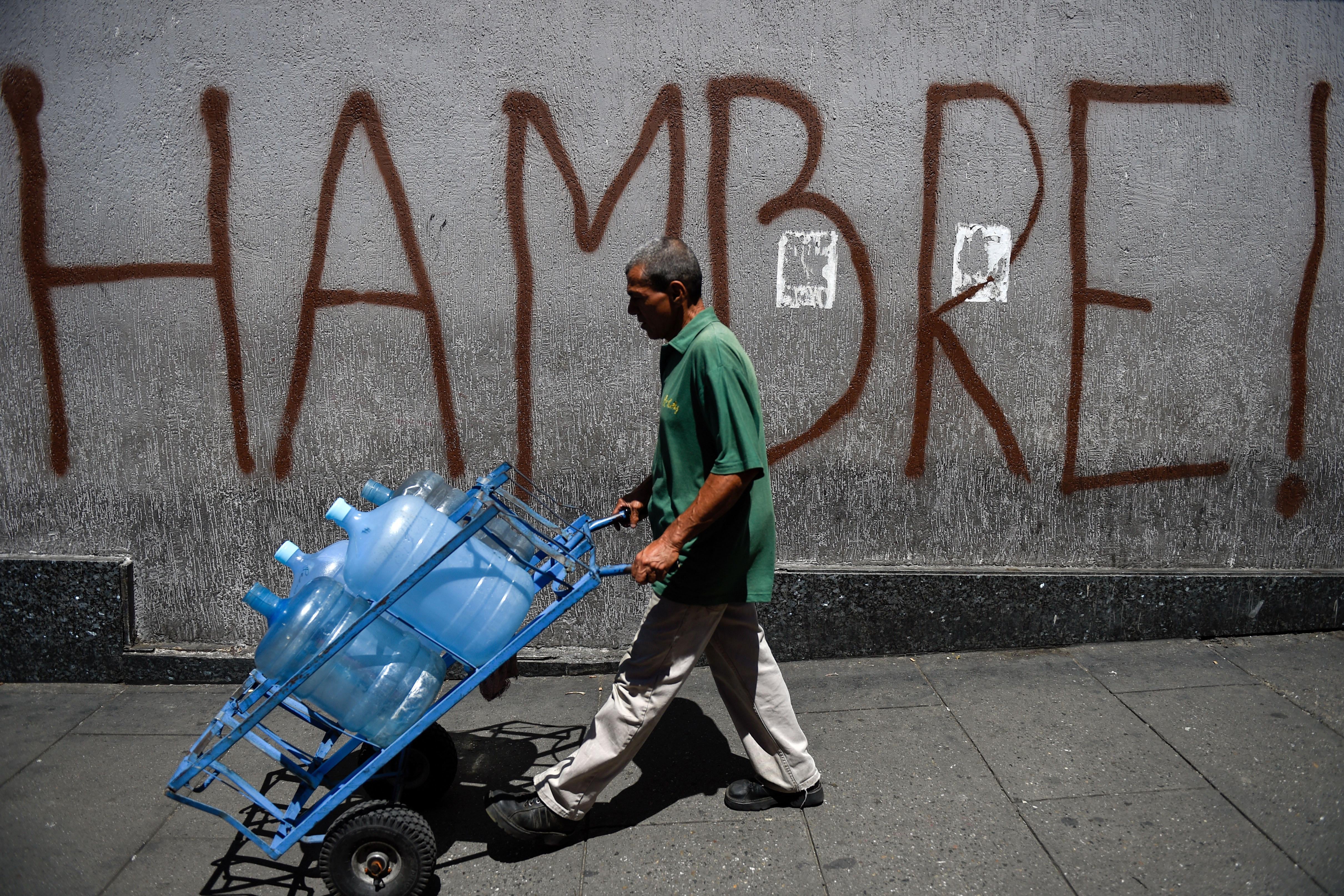Venezuela President Nicolás Maduro announced a series of economic reforms over the weekend meant to combat the soaring inflation rates in the country. Venezuela is issuing a “sovereign bolívar,” which is a new fiat currency that removes five zeroes off the value of the old bolívar. The sovereign bolívar is supposedly backed by a cryptocurrency called “petro” that the government created in January.
In order to better understand the potential impact of the petro on Venezuela’s economic crisis, I spoke Monday with Steve Hanke, a professor of applied economics at Johns Hopkins University and a leading expert on hyperinflation. He also served as an adviser to Venezuela’s former President Rafael Caldera from 1995 to 1996.
Below is a transcript of the interview, which has been condensed and lightly edited for clarity.
Slate: What exactly is Maduro trying to achieve by pegging the petro to the bolívar and devaluing the currency?
Steve Hanke: The whole operation is a public relations one. You have hyperinflation, meaning the inflation rate is over 50 percent per month. Venezuela is the only place that is actually hyperinflating right now. Today, the inflation rate I’m measuring is 65,320 percent. That is up from yesterday’s rate of 61,463 percent, so it’s climbing higher.
The changes are cosmetic. The analogy I like to use is that it would be like going into one of those famed plastic surgeons in Caracas and getting a facelift. You come out looking a little different, but nothing has really changed. That’s the same with this currency reform.
As far as the petro is concerned, that comes into the picture because this new sovereign bolívar is allegedly going to be linked or pegged to the petro in some way. It’s different from other cryptocurrencies in that it’s government-issued. But it also has a unique feature: It doesn’t exist. The whole thing is a sham, a fraud. It was rolled out in January, and it doesn’t trade. It is not considered by those who rate cryptocurrencies as even a cryptocurrency. So that part of the program—forget it.
So why can’t petro be traded? Is it an issue with the technology or a legal hurdle?
If you look at the white paper behind it, it’s a very confusing and contradictory one that they’ve changed many, many times. There have been various editions of the white paper, and they’re internally inconsistent. It just never got launched.
Maduro has been claiming that he’s made billions of dollars from the presale of petro. What should we make of those claims?
They aren’t believable, and they’ve never been audited. If people believed it, this thing would’ve been a success and inflation would’ve started coming down.
The Trump administration has barred U.S. investors from trading in petro. Was this necessary?
Not really. It shows you the foolishness of the United States government because they’ve barred people from trading in something that doesn’t trade, something that doesn’t exist. There’s a phantom out there, and they’re prohibiting you from dealing with the phantom. It’s a joke.
So what is Maduro’s goal with petro if it doesn’t exist?
As I say, it’s a public relations thing. They have a huge problem, and people are very upset about it. More than upset—they’re literally starving and emigrating in huge numbers out of the country to escape this. So the Venezuelans don’t like it. This currency announcement, as with all hyperinflation currency reforms taking off zeros and the like, is a move to signal to the public, “We know what we’re doing, and we’re going to tackle the problem.”
Venezuelan lawmakers have raised concerns that petro may be a way for Maduro to issue debt without the parliament’s consent. What do you make of this concern?
You’re dealing with a group of people, whether it’s the opposition or the government, who don’t know what they’re doing. They’re going on and on about issuing debts over it, but the problem is that they haven’t issued anything that we know of. Supposedly some petro were initially sold with a 60 percent discount, but that’s never been audited. No one actually knows what they did. We do know that it doesn’t trade—it’s a dysfunctional cryptocurrency. In fact, it’s giving cryptocurrencies a bad name. There are enough fraudulent cryptocurrencies and cryptocurrency operations, and now you have a government doing this fraud.
Do you have a sense of how people in Venezuela have reacted to Maduro’s petro efforts?
He has zero credibility, so they don’t believe him. They are very confused about how this is actually going to be implemented and what’s going to happen. So it’s created even more anxiety. The reality is the country has already dollarized.
Are cryptocurrencies in general popular in Venezuela?
There are some, but it’s fairly small potatoes. The dollar is the king. The cryptos are, I would say in this story, a small footnote at best.
There’s been a lot written about the petro in the news. Do you think it’s been overblown?
I do think it’s overblown. This is a crypto-world and there’s crypto-hype. Look at any of these countries [implementing national cryptocurrencies], whether it’s Turkey or Iran or Venezuela, that make a big deal out of crypto as saving the people. If you actually look on the ground at what’s going on, it’s the dollar and it’s gold. The cryptos are a minor thing.
